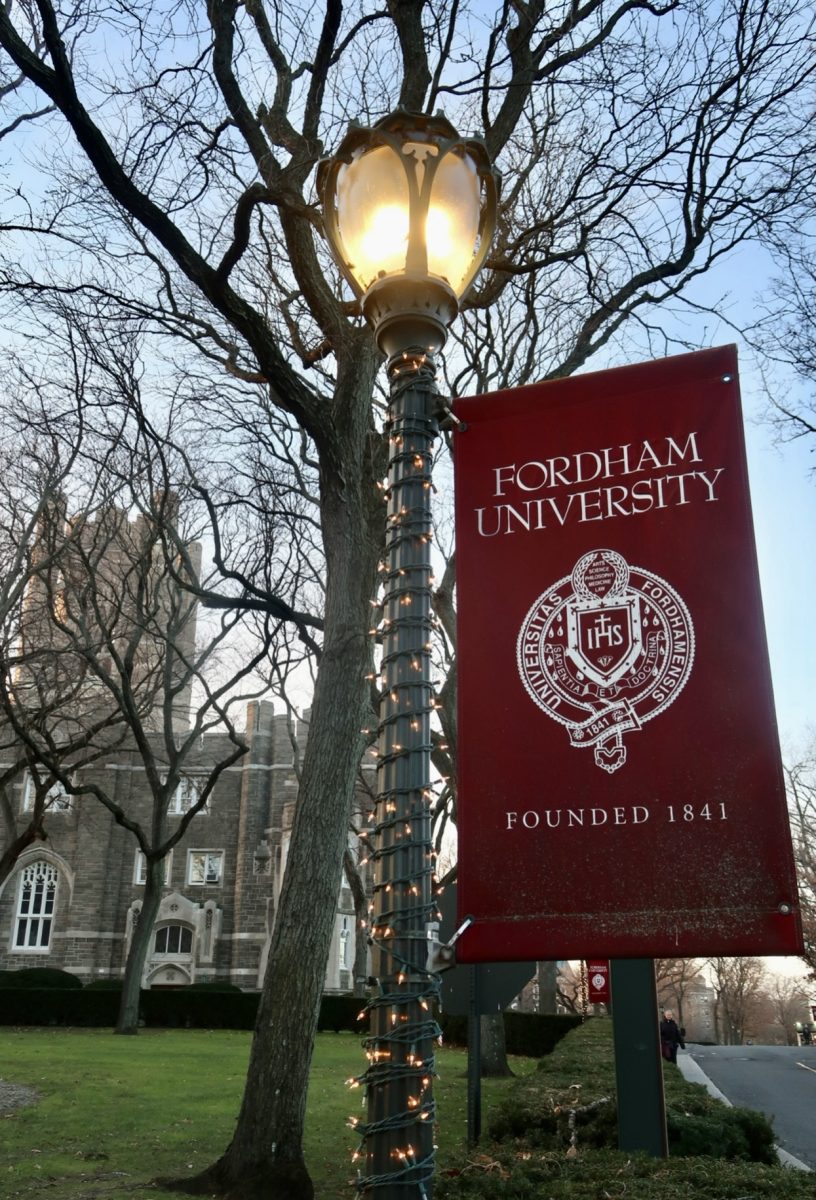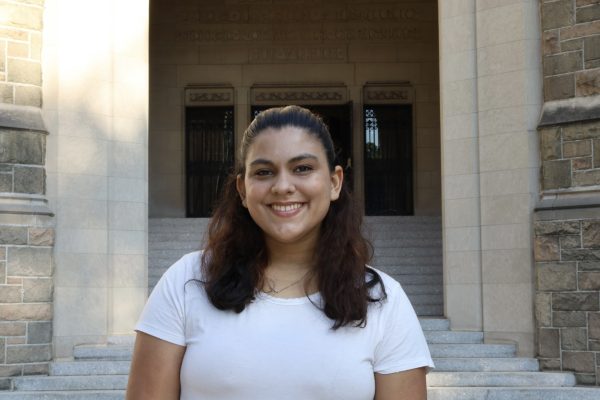Two weeks ago, Marco Valera, vice president of administration, provided The Fordham Ram with insight into Fordham University’s commitment to the NYC Carbon Challenge and how the university plans to achieve their environmental ambitions.
The NYC Carbon Challenge is not the only way in which Fordham has committed to improving their sustainability. Fordham News explained that the university published their Green Plan, “Laudato Si’,” last summer in response to Pope Francis’ encyclical that encouraged the “care of our common home.”
The Laudato Si’ Action Plan outlines seven years worth of environmental changes that Fordham intends to carry out in response to climate change. The plan includes changes in facilities, curriculum and student involvement. Fordham News outlined some changes that occurred in the last quarter of 2023 including the addition of three hybrid minivans to Fordham’s team of Ram Vans and the installation of Babylon Micro Farms in the dining halls at both the Rose Hill and Lincoln Center campuses. The university also recently received a $50 million grant from the Environmental Protection Agency, allowing their efforts to continue onward.
The faculty of Fordham’s Sustainability Committee have taken a lot of pride in their environmental efforts in recent years. The United Student Government (USG) has a sustainability committee of its own which looks at the state of the environment and what Fordham can and should do to help as well.
Sean Powers, FCRH ’24, vice president of sustainability, commented expressing his thoughts on the efforts Fordham is making in terms of sustainability saying, “I believe the steps taken by the university are the right ones. Real progress takes a long time, and I am happy to see Fordham’s ongoing dedication to change.”
Powers expressed that even throughout his time at the university, he had noticed significant change. He explained that the solar farm on the roof of Rose Hill’s parking garage is one of the largest in New York City, allowing the university significant access to sustainable energy. Powers also explained that it is hard to assess if Fordham’s efforts to combat climate change are “enough,” simply due to the subjectivity of the word, highlighting that what one may view as a spectacular change others may view as miniscule.
Additionally, Powers provided insight to those who may wish the university could progress quicker, saying, “I do wish we could snap our fingers and be carbon-neutral, but good things take time, and I would prefer that Fordham takes the proper time to ensure that our commitment to sustainability is done in a way that is safe, practical and realistic for the hundreds of people who work to make it happen.”
However, as in many scenarios, changing an institution as large as Fordham to be sustainable is easier said than done. The university has set admirable goals that would be significant steps towards sustainability.
Powers commented, “I am proud that Fordham has set the goal of reaching 40% reduced emissions, but I hope we stand by it.” Powers set his own goal for the university by stating that he believes the final objective should be recognition as an environmentally responsible institution: “Fordham is already an academically strong university, but I would love for people to think of Fordham as a place that leads its surrounding community in sustainable practices.”
In years to come, the impact of Fordham’s sustainability initiatives will become clearer and hopefully fulfill their goals.








































































































































































































